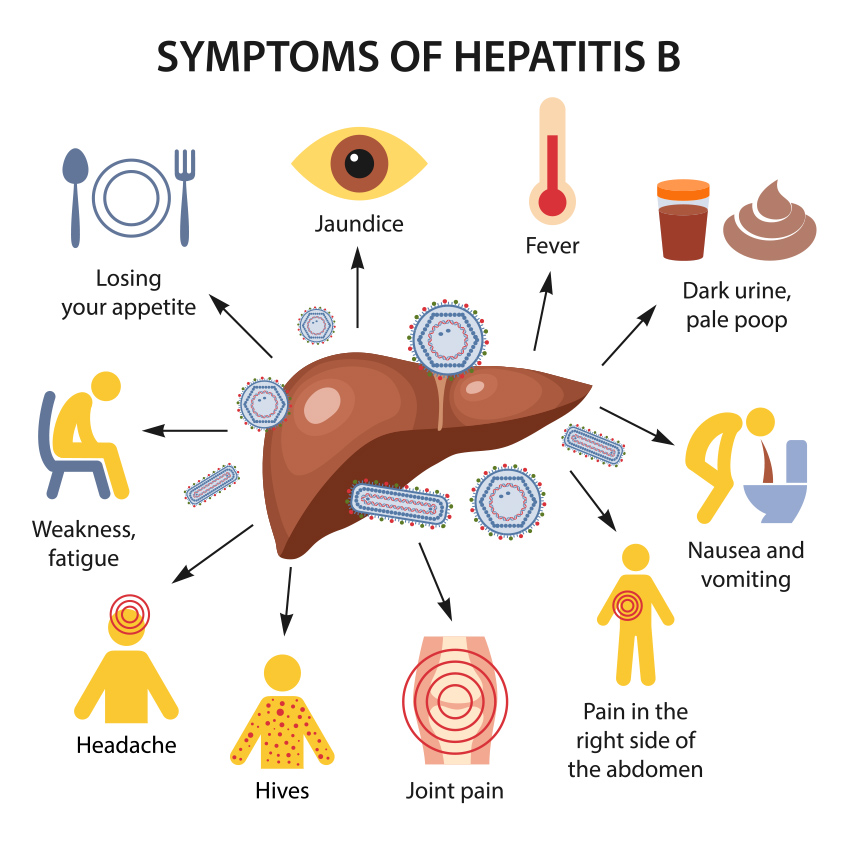Hepatitis B
Have you been Tested on Hepatitis B?
If No, then Contact Us at FAROF
Have you Been vaccinated against the Hepatitis B?
If No, then Contact Us at FAROF
FAROF and her Partners
continue to support health facilities to provided vaccines for clients in all
regions across Nigeria.

Key facts
- Hepatitis B is a viral infection that attacks the liver and can cause both acute and chronic disease.
- The virus is most commonly transmitted from mother to child during birth and delivery, as well as through contact with blood or other body fluids during sex with an infected partner, unsafe injections or exposures to sharp instruments.
- WHO estimates that 296 million people were living with chronic hepatitis B infection in 2019, with 1.5 million new infections each year.
- In 2019, hepatitis B resulted in an estimated 820 000 deaths, mostly from cirrhosis and hepatocellular carcinoma (primary liver cancer).

Community Playlet on the danger of Hepatitis B and not knowing your status by FAROF trained community campions
Are you Living with Hepatitis B
If you test positive for the hepatitis B virus for longer than 6 months, this indicates that you have a chronic hepatitis B infection.
All patients with chronic hepatitis B infections, including children and adults, should be monitored regularly since they are at increased risk for developing cirrhosis, liver failure, or liver cancer.
You should make an appointment with a hepatologist (liver specialist) or gastroenterologist familiar with hepatitis B. This specialist will order blood tests and possibly a liver ultrasound to evaluate your hepatitis B status and the health of your liver. Your doctor will probably want to see you at least once or twice a year to monitor your hepatitis B and determine if you would benefit from treatment.
Not everyone who tests positive for hepatitis B will require medication. Depending on your test results, you and your doctor might decide to wait and monitor your condition. If your test results indicate that you would be a good candidate for treatment, then your doctor will discuss the current treatment options with you. Whether you start treatment or not, your doctor will want to see you every six months, or at minimum once every year.
Before you start any treatment, make sure you research each treatment option, and ask your doctor to thoroughly explain each option, so that you are well informed. It also might be a good idea to get a second opinion from another doctor before starting any treatment, because more information is always better!
Once you are diagnosed with chronic hepatitis B, the virus will most likely stay in your blood and liver for a lifetime. It is important to know that you can pass the virus along to others, even if you don’t feel sick. This is why it’s so important that you make sure that all close household contacts and sex partners are tested and vaccinated against hepatitis B.
The most important thing to remember is that hepatitis B is a chronic medical condition (such as diabetes and high blood pressure) that can be successfully managed if you take good care of your health and your liver. You should expect to live a long, full life.
Are you Newly Diagnosed with Hepatitis B
If you or someone you love have recently been diagnosed with hepatitis B, you are not alone. In fact, nearly 1 in 3 people worldwide will be infected with the hepatitis B virus in their life time.
Receiving a diagnosis of hepatitis B can be confusing or overwhelming, and you may have questions or concerns. The Hepatitis B Foundation is here to help.
First Steps
1. Understand your diagnosis. Do you have an acute or chronic infection? When someone is first infected with hepatitis B, it is considered an acute infection. Most healthy adults who are acutely infected are able to get rid of the virus on their own. If you continue to test positive for hepatitis B after 6 months, it is considered a chronic infection. Knowing whether your hepatitis B is acute or chronic will help you and your doctor determine your next steps. If you are unsure of what your blood test results mean, you may find Understanding Your Blood Tests helpful.
2. Prevent the Spread to Others. Hepatitis B can be transmitted to others through blood and bodily fluids, but there is a safe and effective vaccine that can protect your loved ones from hepatitis B. You should also be aware of how to protect your loved ones to avoid passing the infection to family and household members and sexual partners.
3. Find a Physician. If you have been diagnosed with chronic hepatitis B, it is important to find a doctor that has expertise in treating liver disease. We maintain a searchable physician directory database to help you find a liver specialist near you.
4. Educate Yourself. Get the facts about hepatitis B, including what it is, who gets it, and possible symptoms, starting with What is Hepatitis B.
Vaccine for Hepatitis B
Hepatitis B Vaccine
It takes only a few shots to protect yourself and your loved ones against
hepatitis B for a lifetime.
The hepatitis B vaccine is a safe and effective vaccine that is recommended for all infants at birth and for children up to 18 years. The hepatitis B vaccine is also recommended for adults living with diabetes and those at high risk for infection due to their jobs, lifestyle, living situations, or country of birth. Since everyone is at some risk, all adults should seriously consider getting the hepatitis B vaccine for a lifetime protection against a preventable chronic liver disease.
The hepatitis B vaccine is also known as the first “anti-cancer” vaccine because it prevents hepatitis B, the leading cause of liver cancer worldwide.
If you have a current HBV infection (HBsAg positive) or have recovered from a past HBV infection, the hepatitis B vaccine series will not benefit you or clear the virus. However, the vaccine can provide a lifetime of protection for loved ones who do not have hepatitis B and get the vaccine as soon as possible. Testing is the only way to know if you or your loved ones have a current infection or have recovered from a past infection.

For Viral hepatitis
Service, contact FAROF today
